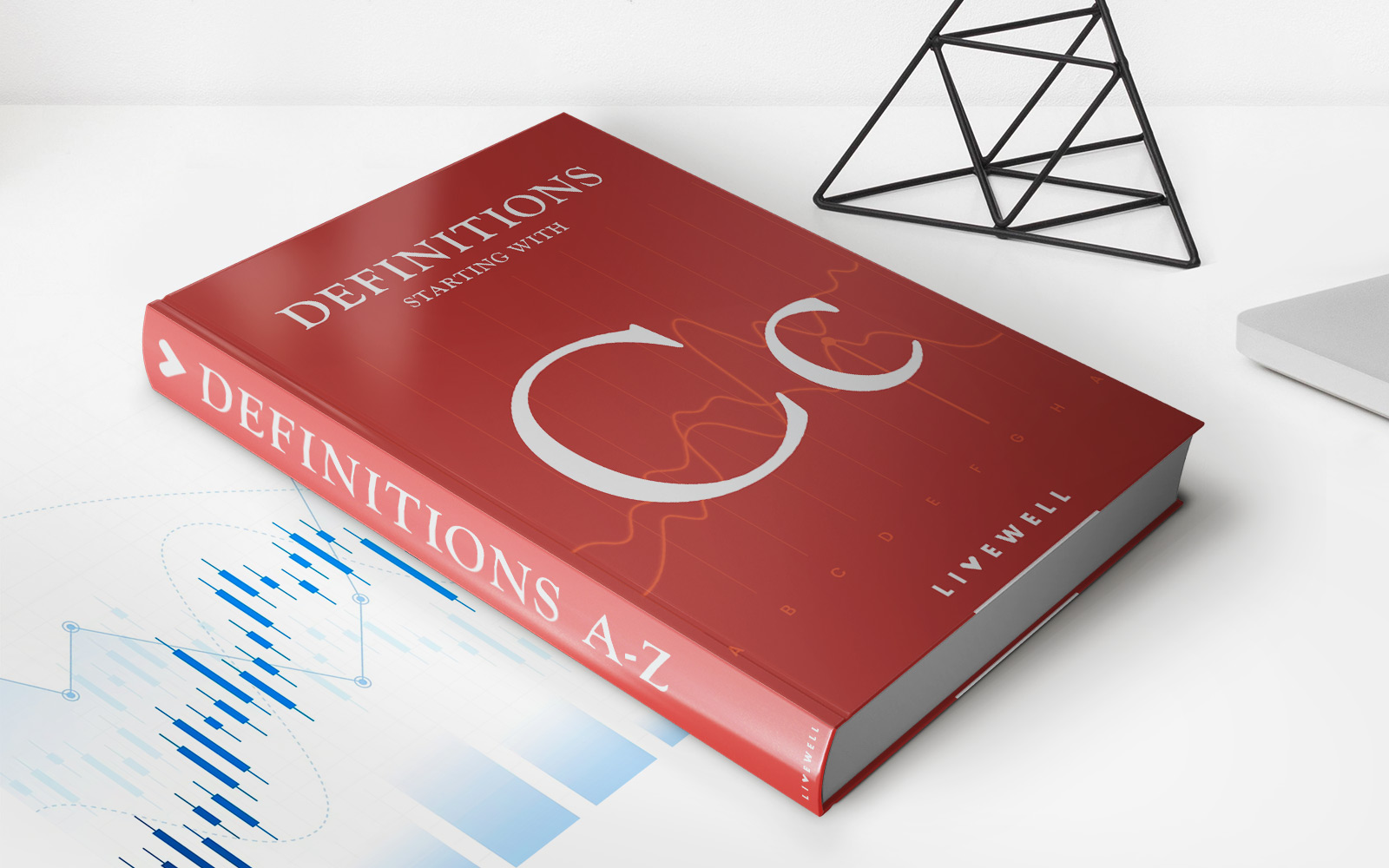Home>Finance>What Happens To Fixed Deposits Of Resident Account For NRIs


Finance
What Happens To Fixed Deposits Of Resident Account For NRIs
Modified: February 23, 2024
Find out what happens to fixed deposits of resident accounts when NRIs are involved. Explore the impact on finances and gain valuable insights on managing your investments.
(Many of the links in this article redirect to a specific reviewed product. Your purchase of these products through affiliate links helps to generate commission for LiveWell, at no extra cost. Learn more)
Table of Contents
Introduction
Fixed deposits are a popular investment option for individuals looking to earn a secure and predictable return on their savings. These financial instruments provide a fixed interest rate over a specific period of time, offering investors a reliable source of income. For residents, opening a fixed deposit account is a straightforward process with multiple banks offering competitive interest rates and flexible tenure options.
But what happens to fixed deposits when an individual transitions from a resident account to the non-resident Indian (NRI) status? This article aims to shed light on the implications of this transition on fixed deposit accounts held by NRIs. It explores the types of fixed deposits available for resident accounts, eligibility criteria for NRIs, and the options available to transfer or convert fixed deposits when an individual becomes an NRI.
Beyond that, we will also delve into the taxation aspects of fixed deposits for NRIs and highlight any significant considerations or benefits that arise from their ownership. Understanding the nuances of fixed deposits in relation to NRI status is essential for anyone seeking to optimize their financial planning, while ensuring compliance with the relevant regulations and taxation provisions.
So, if you are an NRI with fixed deposits in your resident account or considering opening a fixed deposit as an NRI, read on to gain insights into what happens to these investments when your residential status changes.
Definition of Fixed Deposits
Fixed deposits, also known as term deposits or time deposits, refer to a type of investment offered by banks and financial institutions. They allow individuals to deposit a specific amount of money for a fixed period, typically ranging from a few months to a few years. In return, the depositor earns an agreed-upon interest rate on their investment.
The key characteristic of fixed deposits is their fixed tenure and predetermined interest rate. Unlike savings accounts where funds can be withdrawn at any time, fixed deposits have a predetermined maturity date, known as the lock-in period. During this lock-in period, the investor cannot withdraw the deposited funds without incurring a penalty or losing accrued interest. This feature makes fixed deposits a popular choice for individuals who have surplus funds that they do not require immediate access to.
Fixed deposits are considered low-risk investments as they offer a guaranteed return of principal and a predetermined rate of interest. This makes them an attractive option for conservative investors seeking stability and steady returns on their savings. The interest rate offered on fixed deposits is typically higher than that of savings accounts or other liquid investments. However, it is important to note that fixed deposits may offer lower returns compared to riskier investment options such as equities or mutual funds.
Fixed deposits can be opened by individuals, as well as joint account holders, and are available in both Indian Rupee (INR) and foreign currency denominations. Interest on fixed deposits can be paid out at different intervals, such as monthly, quarterly, semi-annually, or at maturity, depending on the bank’s policies and the depositor’s preference.
In summary, fixed deposits are a secure investment option that enables individuals to earn a fixed rate of interest on their savings for a predetermined period. They provide stability, predictability, and a guaranteed return of principal, making them an attractive choice for risk-averse investors.
Types of Fixed Deposits for Resident Accounts
Resident individuals have access to various types of fixed deposits offered by banks and financial institutions. These types of fixed deposits cater to different financial goals, risk preferences, and liquidity needs. Here are some common types of fixed deposits available for resident accounts:
- Regular Fixed Deposits: These are the standard fixed deposit accounts where individuals can deposit a lump sum amount for a specific tenure at a predetermined interest rate. Regular fixed deposits offer a higher interest rate compared to savings accounts and provide a fixed return at maturity.
- Flexi Fixed Deposits: Flexi fixed deposits provide a flexible option where individuals can withdraw a part of their deposit without prematurely closing the entire account. This type of deposit offers liquidity while still earning interest on the remaining balance. However, the withdrawn amount may attract penalties or reduced interest rates.
- Senior Citizen Fixed Deposits: Senior Citizen fixed deposits are designed specifically for individuals who are 60 years or older. These deposits often offer higher interest rates than regular fixed deposits as a benefit for senior citizens.
- Fixed Deposit Sweep-In Accounts: Sweep-in accounts combine the convenience of a savings account with the higher interest rates of fixed deposits. Any excess funds in the savings account are automatically transferred to a fixed deposit, providing an opportunity to earn more interest while maintaining liquidity.
- Tax Saving Fixed Deposits: Tax saving fixed deposits offer tax benefits under Section 80C of the Income Tax Act. Individuals can claim deductions up to a specified limit on the amount invested in these fixed deposits, reducing their taxable income.
- NRI Fixed Deposits: Although we will discuss NRIs and their fixed deposits later in this article, it is worth mentioning that some banks offer specific fixed deposit options for NRIs. These accounts have features and benefits tailored to meet the needs of non-resident individuals.
It is important to consider your financial goals, risk tolerance, and liquidity requirements when choosing the type of fixed deposit for your resident account. Each type has its own advantages and considerations, so it is advisable to compare the features, interest rates, and terms offered by different banks before making a decision.
Eligibility of NRIs for Fixed Deposits
Non-Resident Indians (NRIs) are eligible to open fixed deposit accounts in India. However, certain regulations and guidelines govern the eligibility criteria for NRIs to invest in fixed deposits. Here are the key points to consider:
- NRI Status: To be eligible for NRI fixed deposits, individuals must hold NRI status as defined by the Reserve Bank of India (RBI). This status is granted to Indian citizens who reside outside India for employment, business, or other purposes, as well as individuals who are of Indian origin and have migrated to other countries.
- Types of NRI Accounts: NRIs can open fixed deposit accounts under two categories – NRE (Non-Resident External) and NRO (Non-Resident Ordinary). NRE fixed deposits are maintained in Indian Rupees and are fully repatriable, meaning the funds can be freely transferred back to the NRI’s foreign account. On the other hand, NRO fixed deposits are maintained in Indian Rupees but have restrictions on repatriation, making them suitable for income earned in India and funds that cannot be repatriated.
- Documentary Requirements: NRIs need to submit specific documents to open a fixed deposit account in India. These include a valid passport, NRI status proof (such as a valid visa or residency permit), and the Overseas Address Proof (OAP) or a local address proof in India, depending on the bank’s requirements.
- Foreign Currency Deposits: NRIs also have the option to open fixed deposits in foreign currencies, such as US Dollars, Euros, or Pounds Sterling. These deposits, known as FCNR (Foreign Currency Non-Resident) fixed deposits, are maintained in foreign currency and offer protection against exchange rate fluctuations.
- Joint Accounts: NRIs can open fixed deposit accounts jointly with other NRIs or resident Indians, subject to the bank’s policies. Joint accounts may have specific rules regarding operation, repatriation, and taxation, so it is essential to understand the terms and conditions beforehand.
It is crucial for NRIs to comply with the guidelines set by the RBI and the bank when opening fixed deposit accounts. These regulations are in place to ensure transparency, track fund sources, and maintain appropriate records. It is advisable to consult with the bank or a financial advisor to understand the specific eligibility requirements and documentation needed to open an NRI fixed deposit account.
What Happens to Fixed Deposits when an NRI becomes a Resident?
When an NRI transitions back to being a resident, there are certain implications for their fixed deposit accounts. The specific actions and changes will depend on the individual’s circumstances and the terms and conditions of their fixed deposit. Here are the general scenarios that could occur when an NRI becomes a resident:
- Conversion of NRI Account: In many cases, the NRI fixed deposit account will be converted to a resident fixed deposit account once the individual becomes a resident. This conversion can be done by providing the necessary documents and complying with the bank’s procedures. The account will then be treated as a resident fixed deposit with the applicable interest rates and terms.
- Renewal of Fixed Deposit: If the NRI fixed deposit has not yet reached maturity, the account can be renewed upon its maturity as a resident fixed deposit account. The renewal options, interest rates, and tenure can be negotiated with the bank based on prevailing policies and market conditions.
- Taxation Changes: When an NRI becomes a resident, there could be changes in the taxation of the fixed deposit interest earned. As an NRI, the individual may have been subject to different tax regulations, such as TDS (Tax Deducted at Source) at higher rates. As a resident, the individual would need to follow the applicable tax laws for residents, which may involve lower TDS rates or the requirement to declare interest income in their tax returns.
- Modification of Repatriation Options: NRIs have different repatriation options for their fixed deposits, depending on the type of account they hold. Upon becoming a resident, these repatriation options may change or be limited. Resident accounts typically have restrictions on freely repatriating funds and may require all transactions to be in Indian Rupees.
- Bank’s Policies: Each bank may have its own policies and procedures for handling fixed deposits when an NRI becomes a resident. It is essential to communicate with the bank and understand their guidelines to ensure a smooth transition and avoid any unnecessary complications.
It is important for NRIs transitioning to resident status to proactively contact their bank, provide the necessary documents, and discuss the changes in their account status. This will help in avoiding any disruptions in the fixed deposit and ensure compliance with the regulations governing resident fixed deposit accounts.
Transfer Options for NRIs with Fixed Deposits in Resident Accounts
NRIs who have fixed deposits in their resident accounts may have various options to transfer or convert these deposits to NRI accounts or other investment avenues. The transfer options available will depend on the bank’s policies, the type of fixed deposit, and the individual’s specific requirements. Here are some common transfer options for NRIs with fixed deposits in resident accounts:
- Conversion to NRE/NRO Accounts: NRIs can choose to convert their resident fixed deposit accounts to NRE (Non-Resident External) or NRO (Non-Resident Ordinary) accounts, depending on their needs. NRE accounts are suitable for funds that can be repatriated, while NRO accounts are more suitable for income earned in India and funds that cannot be freely repatriated.
- Transfer to FCNR Account: If the fixed deposit is denominated in a foreign currency, NRIs can consider transferring the funds to an FCNR (Foreign Currency Non-Resident) account. FCNR accounts allow NRIs to hold their funds in foreign currency and provide protection against exchange rate fluctuations.
- Premature Withdrawal and Reinvestment: In certain cases, NRIs may opt to withdraw the fixed deposit prematurely and reinvest the funds in an NRI-specific investment option. This could include NRE/NRO fixed deposits, NRI mutual funds, or other eligible investment avenues. However, it is important to consider any penalties or charges associated with premature withdrawal.
- Transfer to Other Investment Avenues: NRIs can explore other investment options available to them, such as NRI-specific mutual funds, government securities, bonds, or the stock market. These options may offer higher growth potential but also come with varying levels of risk and return.
- Renewal as an NRI Fixed Deposit: When the fixed deposit matures, NRIs can choose to renew it as an NRI fixed deposit, either in the same bank or a different bank. This allows them to continue earning competitive interest rates and maintain their investments in India.
It is advisable for NRIs to consult with their bank or a financial advisor to understand the specific transfer options available to them and evaluate the benefits, risks, and taxation implications associated with each option. The choice of transfer or conversion will depend on factors such as repatriation needs, desired investment tenure, prevailing interest rates, and individual financial goals.
Taxation on Fixed Deposits for NRIs
Taxation on fixed deposits for NRIs is subject to the income tax laws of India. Here are some important points to understand about the taxation aspects:
- TDS (Tax Deducted at Source): Banks are required to deduct TDS on the interest earned by NRIs on their fixed deposits. The TDS rates may vary depending on the type of fixed deposit and its duration. Currently, the TDS rate for NRE and FCNR fixed deposits is nil, whereas for NRO fixed deposits, it is as per the applicable income tax slab rates.
- Income Tax Slabs: For NRIs, the income tax slabs applicable to resident individuals are also applicable to the interest earned on fixed deposits in India. However, it is important to note that NRIs are only taxed on their income generated in India. Income earned outside India is typically not taxable in India for NRIs.
- Tax Benefits: NRIs can avail tax benefits under the Double Taxation Avoidance Agreement (DTAA) between India and their respective country of residence. This agreement ensures that NRIs do not pay tax on the same income in both India and their home country. NRIs can claim foreign tax credit or exemptions as per the provisions of the DTAA.
- Form 15CA and 15CB: NRIs may be required to submit Form 15CA and obtain a Certificate of Tax Deduction (Form 15CB) from a chartered accountant for certain transactions related to their fixed deposits. These forms are used to ensure compliance with the Foreign Exchange Management Act (FEMA) regulations and proper reporting of income earned in India.
- Taxable vs. Non-taxable Income: The interest earned on NRE fixed deposits is typically considered non-taxable in India. The interest on NRO and FCNR fixed deposits is subject to taxation as per the applicable income tax rates. It is important for NRIs to maintain separate NRE and NRO accounts to ensure proper classification of their income for tax purposes.
It is recommended for NRIs to consult with a tax advisor or chartered accountant to understand the specific taxation implications based on their individual circumstances. They can provide guidance on the latest tax regulations, any tax planning opportunities, and assist in filing tax returns in compliance with the Indian income tax laws.
Conclusion
Fixed deposits are a popular investment option for both residents and NRIs, offering a secure and predictable way to earn returns on savings. When an NRI becomes a resident, their fixed deposit accounts undergo certain changes and considerations. It is important to understand the implications and explore the various transfer options available to optimize their investments. Additionally, being aware of the taxation aspects of fixed deposits for NRIs ensures compliance with income tax regulations and maximizes tax benefits.
As NRIs transition from resident accounts to NRI accounts, they can choose to convert their fixed deposits or transfer the funds to NRE, NRO, or FCNR accounts, depending on their repatriation needs and investment preferences. They can also consider other investment avenues available to NRIs, such as NRI-specific mutual funds or the stock market, for potential higher growth.
Taxation on fixed deposits for NRIs involves TDS on interest earned, applicable income tax slabs, and potential benefits under the Double Taxation Avoidance Agreement. Understanding the tax implications allows NRIs to plan and optimize their tax liabilities while taking advantage of available exemptions and credits.
In conclusion, it is crucial for NRIs to stay informed about the implications and options regarding their fixed deposits when transitioning from a resident to an NRI status. Proper communication with the bank, compliance with regulations, and seeking professional advice can help ensure a smooth transition, preserve their investments, and make informed decisions regarding their financial future.














